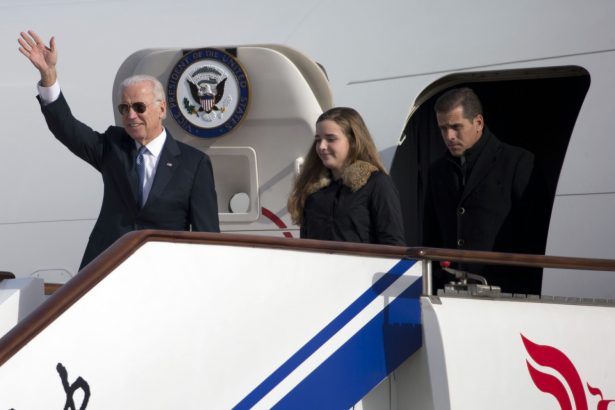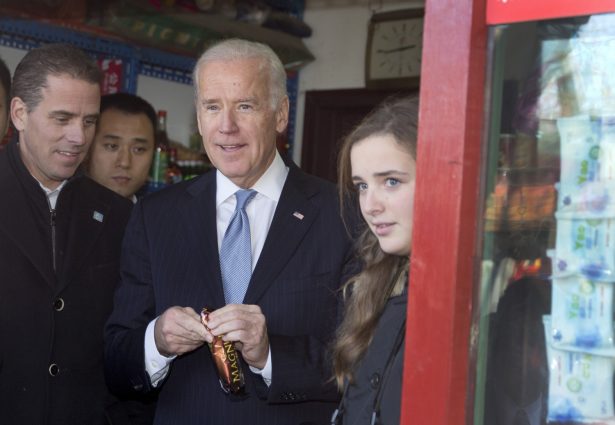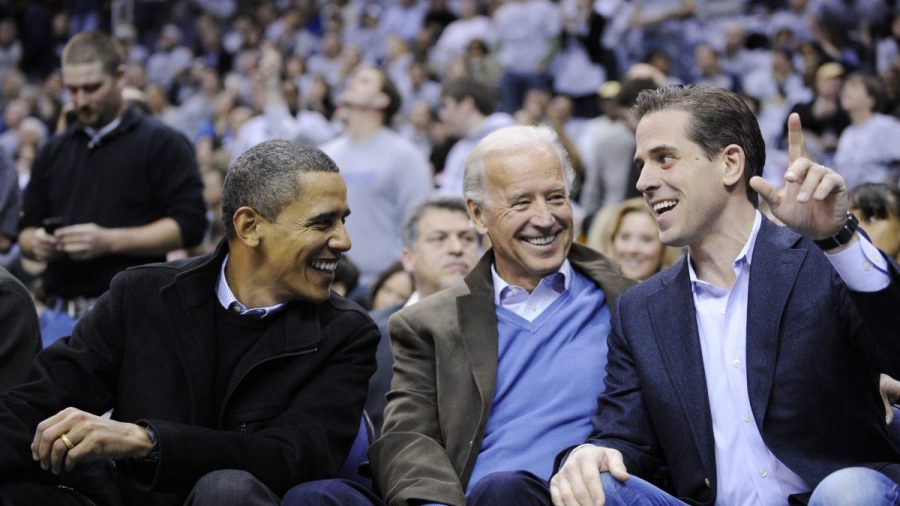Hunter Biden, the son of 2020 Democratic presidential contender Joe Biden, admitted that he helped set up a meeting between a Chinese tycoon and his father when they traveled to China in 2013.
Biden, who has been involved in businesses in both China and Russia for a number of years, said that he saw his business partner, Jonathan Li, when he and Joe Biden traveled to China six years ago. Joe Biden was vice president at the time.
Biden and Li told the openly liberal New Yorker magazine that the meeting between them was a social meeting.
Biden said that he also brought his father and Li together, allowing his business partner to shake hands with the vice president. It wasn’t clear how long the meeting lasted.
“How do I go to Beijing, halfway around the world, and not see them for a cup of coffee?” Biden told the magazine, attempting to defend what happened.

Li created a fund called BHR Partners in June 2013. Biden was an unpaid board member at the time of the December 2013 visit and took an equity stake in the fund after Joe Biden left the White House.
“Hunter’s meeting with Li and his relationship with BHR attracted little attention at the time, but some of Biden’s advisers were worried that Hunter, by meeting with a business associate during his father’s visit, would expose the Vice-President to criticism,” the New Yorker reported.
A former senior White House aide added that Hunter Biden’s actions highlighted questions about whether he “was leveraging access for his benefit.”
According to ABC News, within weeks of the China visit, Hunter Biden was doing business in China as part of Bohai Harvest RST, which was run by Li.
Hunter Biden’s admission seemed to come in direct contrast with recent comments from his attorney, who claimed that Biden did not conduct business during the trip.

The attorney told ABC that Hunter Biden did not conduct any business during the trip and the attorney told the New York Times that “he did not conduct any business related to the China investment fund on that trip.”
The discrepancy between the statements was first reported by the conservative Breitbart website.
Robert Weissman, the president of progressive watchdog group Public Citizen, called Hunter Biden’s actions concerning in an interview with ABC.
“At absolute minimum there’s a huge appearance of conflict, and there’s every reason to think that the investors that he‘s working with want him partnering with them because he’s the son of the then-vice president and now presidential candidate,” Weissman said. “[Joe Biden] should have encouraged his son to not take these positions.”
Hunter Biden’s links to China and Russia have increasingly come into focus after his father announced he was running for president earlier this year.
President Donald Trump said in May that Joe Biden should be investigated over allegations that his son’s investment firm received millions of dollars from the Chinese communist regime.
The allegations were first raised in the book “Secret Empires: How the American Political Class Hides Corruption and Enriches Family and Friends” by author Peter Schweizer.
Published in 2018, the book says that a business deal that Hunter Biden completed in 2013 took place after his father was “very soft” on communist China.
“The Chinese are not going to toss around deals that size without expecting something in return,” Schweizer said recently. “Why did you get a billion-dollar-plus deal with the Chinese government—a kind of deal that Goldman Sachs and nobody else got—even though he had no background in private equity and no background in China? These are very simple and basic questions that need to be asked.”

